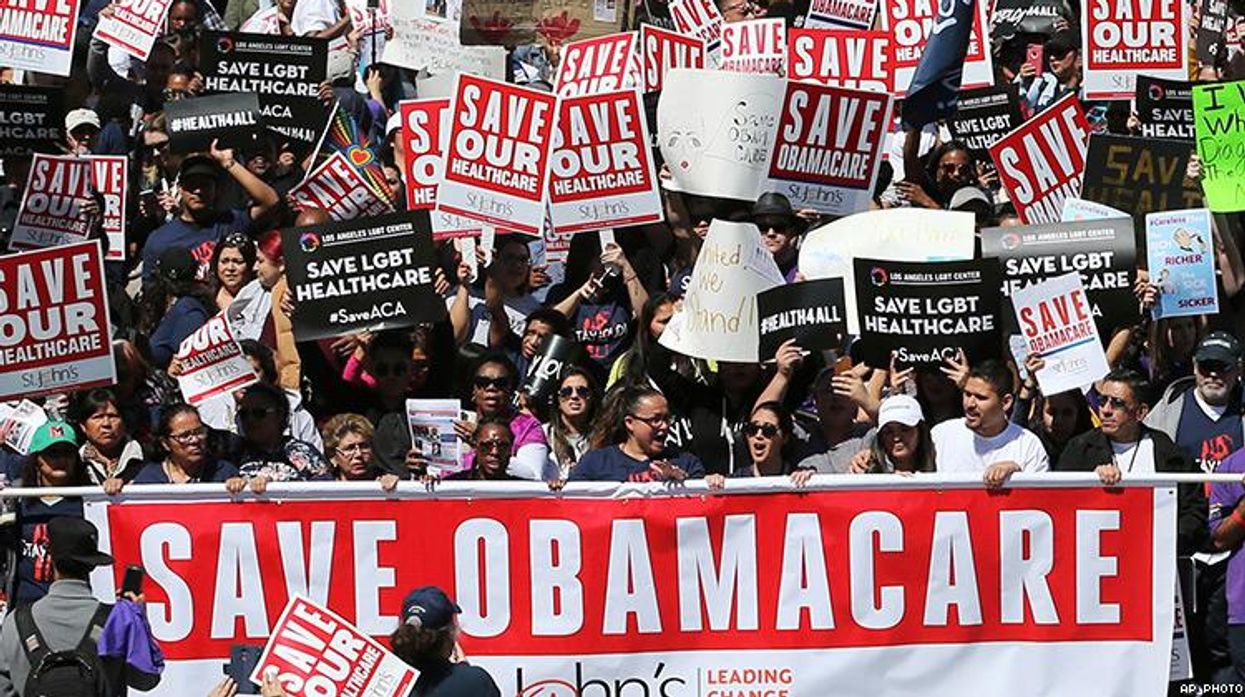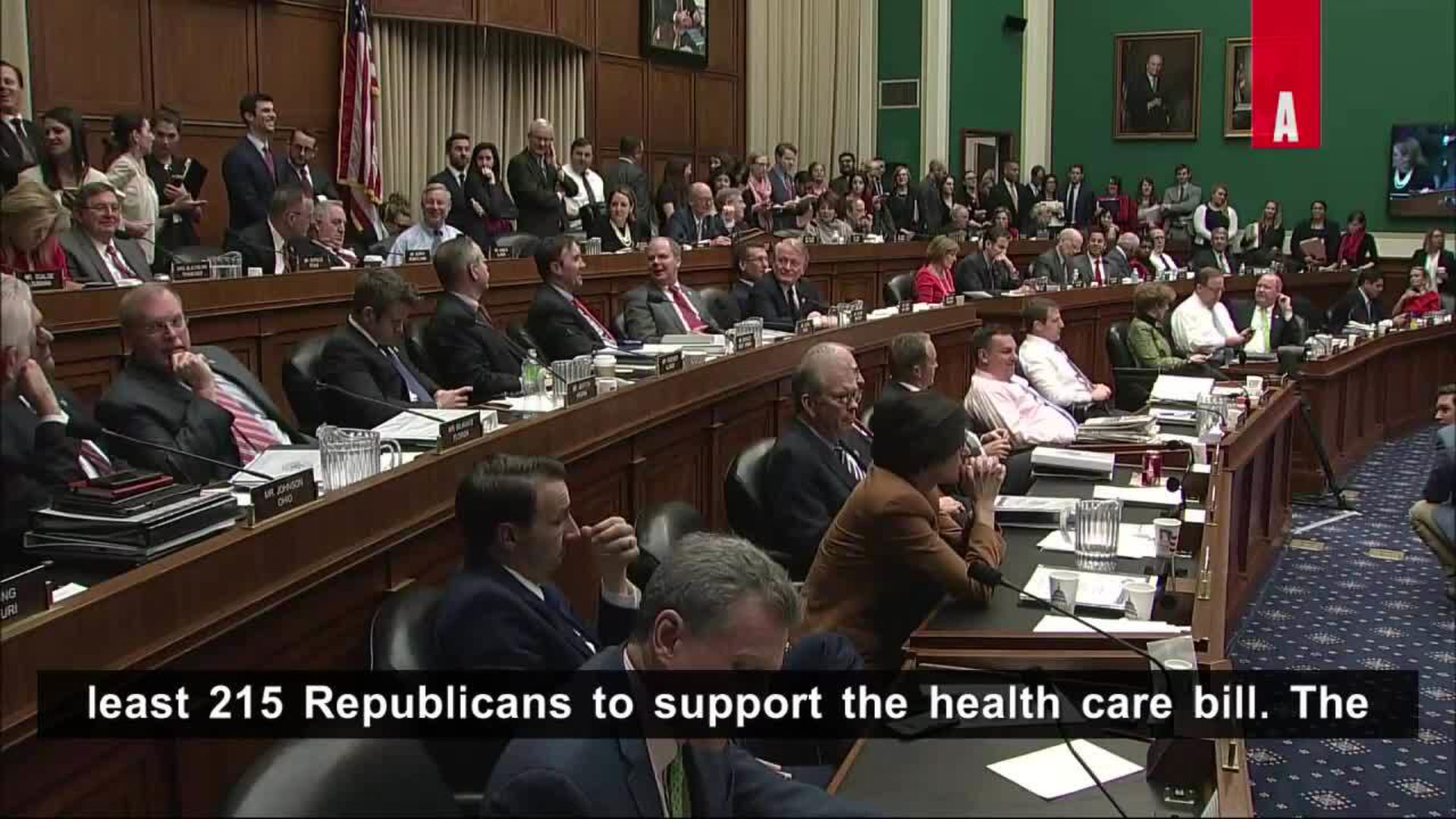Health
With Failure at Hand, Trump and Ryan Pull Health Care Bill

Repealing and replacing Obamacare was a mantra of the Trump campaign. It has not come to pass.
March 24 2017 3:35 PM EST
Nbroverman
By continuing to use our site, you agree to our Privacy Policy and Terms of Use.

Repealing and replacing Obamacare was a mantra of the Trump campaign. It has not come to pass.

Thanks to a fissure between moderate Republicans unhappy with the legislation's cuts to their voting bloc and the far-right Freedom Caucus that wanted an even more hard-line bill, the American Health Care Act could not find the requisite votes for passage. A vote was supposed to take place at 3:30 p.m. Eastern, but instead, the legislation was yanked.
The bill was not helped by the influential groups urging a no vote, including AARP and the American Medical Association. Women's and LGBT groups like the Human Rights Campaign, the National Center for Transgender Equality, and Planned Parenthood also denounced the bill.
After Trump was elected and the Republicans maintained control of both houses of Congress, it seemed inevitable that Obamacare would be repealed. Trump has repeatedly called Obamacare a "disaster" and campaigned on its repeal, even though the number of uninsured Americans is now the lowest its ever been. When President Obama signed his Affordable Care Act (nicknamed Obamacare) in 2010, it was seen as a turning point in American history and the culmination of decades of efforts to expand health insurance, pushed by everyone from Senator Ted Kennedy to First Lady Hillary Clinton.
Seven years later, the GOP has failed to produce legislation that would better service Americans' health needs. The bill would have equated to millions in tax cuts to the wealthy and substantial increases in premiums to seniors and low-income people.
"The current effort to repeal the ACA is disgraceful," lesbian activist Roma Guy wrote in an op-ed for The Advocate. "Nonpartisan analysis of the American Health Care Act -- or, as I like to call it, the #CareLESSPlan -- finds that 24 million people will lose their health care coverage by 2026. The proposed cuts to Medicaid and subsidies for low-income adults hit the most vulnerable in our communities hardest -- including our LGBT communities. Repeal of the ACA and cuts to the Medicaid program would make health insurance a luxury that many LGBT could not afford while cutting taxes for the wealthy, the insurance industry, and drug manufacturers, among many others.
"On top of that, the AHCA singles out Planned Parenthood, an important provider of health care for women and LGBT people. Planned Parenthood is, indeed, one of the largest providers of health care for transgender people. By defunding Planned Parenthood, the AHCA would make it harder and, in some areas of the country, impossible to access culturally competent sexual health, preventive, and transition-related care."
The American Health Care Act would also mean devastating cuts to HIV-positive people.
"According to the Department of Health and Human Services, before the Affordable Care Act was passed, 24 percent of people with HIV had no health insurance coverage at all," Kelsey Louie of Gay Men's Health Crisis wrote in The Advocate. "There are 1.2 million people in the U.S. already living with HIV. Health insurance is vital to keeping viral suppression rates up and infection rates down. The ACA provided critical subsidies for private insurance and expanded Medicaid in 31 states and the District of Columbia, which increased access to medical treatment. It also guaranteed coverage for people with preexisting conditions such as HIV and covered HIV testing. Finally, by funding prevention efforts of HIV and AIDS service organizations, the ACA was playing a big role in keeping the virus from being transmitted to our most vulnerable communities -- transgender women of color, and young men of color who have sex with men.
"The Centers for Disease Control and Prevention estimates that in the United States, one in two black MSM and one in four Latino MSM will be diagnosed with HIV in their lifetime. The plan that Republican congressional leadership is preparing to fast-track could be particularly problematic for communities at higher risk of HIV infection as well as the entire LGBT community. By gutting Medicaid expansion and other benefits, the proposal could complicate PrEP access and promotion in the states that adopted Medicaid expansion. If passed, the new bill will begin to eliminate money for Medical expansion in 2020, potentially blocking new applicants and access to critical medication. PrEP, a once-a-day dosage of a preventative drug that is 99 percent effective when taken as prescribed, is essential to efforts to end the epidemic nationwide. Reducing access and availability of PrEP has the potential to further spread the virus, as many have come to rely on this strategy to stay negative."
Charlie Kirk DID say stoning gay people was the 'perfect law' — and these other heinous quotes